Border barriers a hot topic in “Little Iceland”
At Jónshús, a culture house for Icelanders in Copenhagen, border barriers have become the topic of the day. Top themes: securing a bank account and claiming child benefits.
It can often take a long time to open a bank account in Denmark for the relatively high number of Icelanders who come to work or study. The frustration of trying to access the Danish banking system fills the everyday lives of newly arrived Icelanders.
This is according to Halla Benediktsdóttir, the leader of Jónshús – a culture house in Copenhagen financed by the Icelandic parliament, Altinget. She is from Iceland herself and arrived in Denmark 15 years ago. Her job puts her in touch with many other Icelanders. Jónshús has around 1,000 monthly users, mostly people from Iceland, and is known as “Little Iceland”.
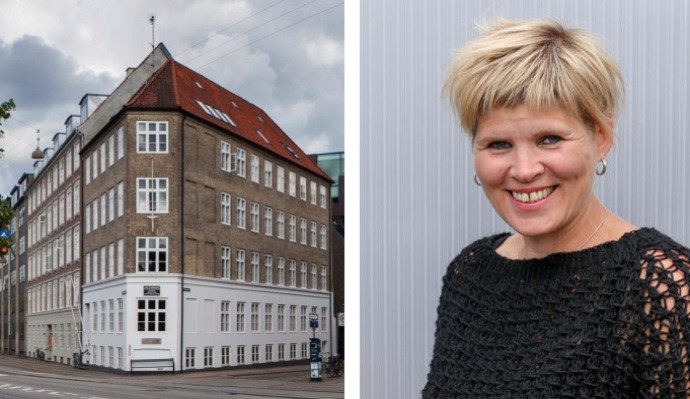
Iceland's House – or Jónshús – is a community hall for Icelanders in Copenhagen. It is run by Halla Benediktsdóttir. Photo: Jónshús.
“Every Icelander I meet talk about how it can take weeks to obtain a Danish bank account. When you go to Denmark to get a job, you need to provide your employer with a bank account immediately in order to be paid.”
Bank accounts needed for wages and student loans
Halla Benediktsdóttir’s own daughter-in-law had to wait for weeks to open a bank account when she arrived in Denmark in late 2023.
“She had a job and accommodation with us here in Denmark. It still took weeks. And Icelanders who come here and have to find somewhere to live first have to wait even longer.”
To get a bank account, you need a Danish health insurance card, which in turn requires a residential address. This makes things difficult for some students who need to access student loans, according to Halla Benediktsdóttir.
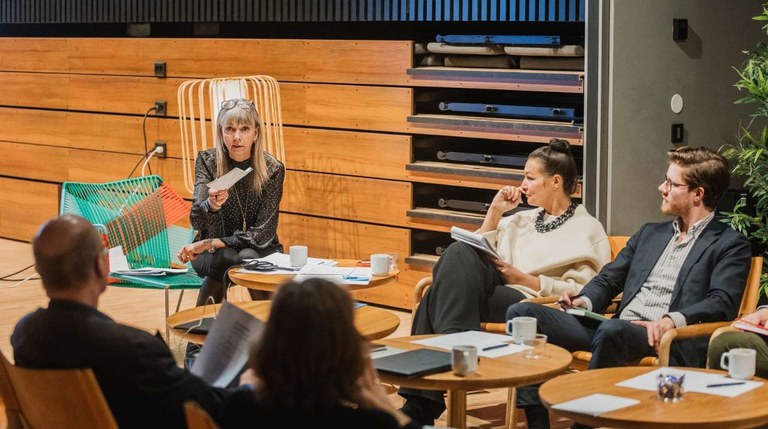
Siv Fridelifsdóttir is Iceland's representative on the Freedom of Movement Council. To her right is Sandra Forsén and Max Andersson, representative from Åland. Photo: Lisa Wikstrand/norden.org
Sandra Forsén and Petri Suopanki are well aware of the stories Icelanders tell about the hassle of getting a bank account. Both are senior advisors at the Nordic Council of Ministers and work with the Freedom of Movement Council and its efforts to reduce border barriers between the Nordic countries. Work and education are very much part of their remit.
“Getting a bank account is absolutely a challenge for Icelanders in Denmark – and all other Nordic citizens who commute or move between the Nordic countries. We get the impression that the problem has become worse in recent years, as banks are implementing stricter EU rules,” says Sandra Forsén.
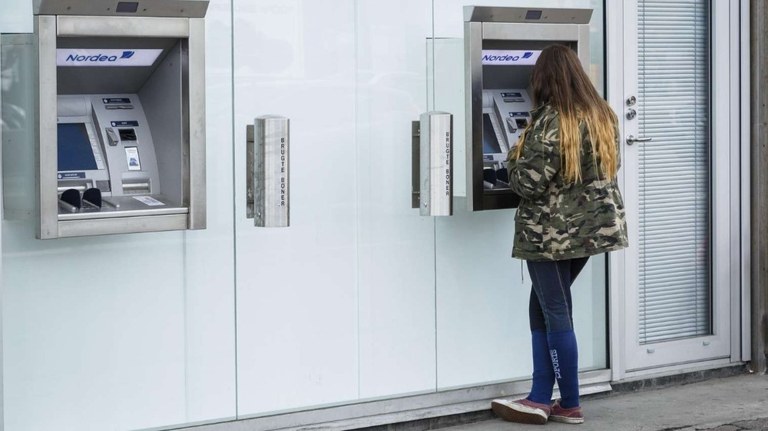
For Nordic banks, the entire Nordic region is their market, like Finnish-Swedish Nordea. But it is not that easy to open a bank account if you come from a different Nordic country. Photo: Yadid Levy/Norden.org.
The banks are undergoing more and more time-consuming procedures for approving new customers in order to prevent money laundering and terror. Other EU rules say banks must make sure new customers can open an account within ten days. Banks are struggling to live up to this, explains Sandra Forsén.
“The challenges of opening a bank account is therefore on the list of Nordic border barriers that the Freedom of Movement Council is focusing on as part of its effort to secure open cross-border commuting,” she says.
Child benefit problems
Another issue Sandra Forsén and Petri Suopanki work a lot with is child benefits. This is also often debated when Icelanders meet at Jónshús. Some Icelanders struggle to get an overview over which rights they have, believes Halla Benediktsdóttir.
“I meet many who have brought children to Denmark who do not know or understand the differences between the Icelandic and Danish child benefit systems when the parents are divorced and the father lives in Iceland, for example, while the mother lives in Denmark with the children,” says Halla Benediktsdóttir.
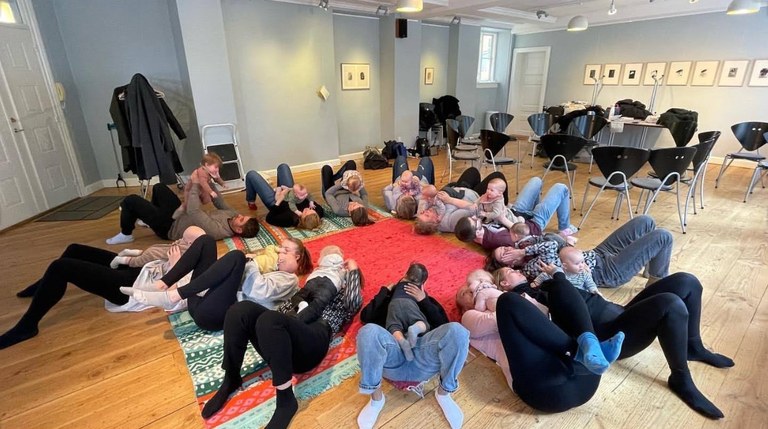
Parents' meeting with baby singing is one of the activities in the house. Photo: Jónshús.
Petri Suopanki understands this challenge well. He says the problem of transferring child benefits between Iceland and Denmark has been up for debate in the Nordic cooperation repeatedly. In one particular case, the Danish Debt Agency withheld money that made up the difference between the Icelandic and Danish child benefits.
“That case was solved in 2020, but the challenge has apparently returned. Another case is about the Debt Agency’s routines. The Danish parliamentary ombudsman has criticised the lack of progress in the recovery of Danish claims abroad, and the Freedom of Movement Council has been informed that many of these cases concern Iceland,” says Petri Suopanki.
Researcher flats and memorial exhibition
Some of the Jónshús users are also concerned about the differences in pension rules between Iceland and Denmark, as well as the Danish rules for receiving housing benefits. Halla Benediktsdóttirs says many Icelanders go to Denmark to work because of the high housing costs at home.
Yet it is not easy to find affordable accommodation in the Copenhagen area either. That is why the Icelandic culture house offers two flats that Icelandic researchers can use for up to four weeks.
The building also houses a memorial exhibition for Jón Sigurðsson – an Icelandic national hero. He was the leader of the Icelandic independence movement in the 19th century and travelled to Copenhagen to study at the university. He and his wife lived in the building where Jónshús is located for 27 years, hence the name.
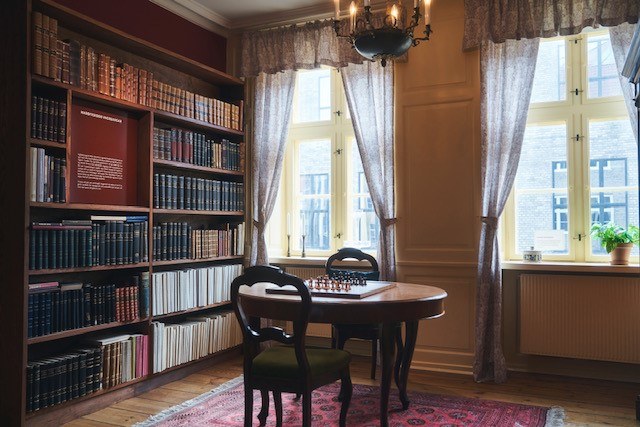
An exhibition inside Jónshús gives a glimpse into the daily lives of Ingibjörg Einarsdóttir and Jón Sigurðsson. The couple's flat in Øster Voldgade 12 has been reconstructed. Jón led Icelanders in their fight for independence in a personal union with the Danish king. Photo: Jónshús.
Jónshús is open to everyone but is primarily visited by Icelanders. It serves as a venue for various activities for Icelanders living in the Copenhagen area. Two associations have offices in the building, and many other associations also use the premises for meetings and various activities. Jónshús also houses the Icelandic association’s library.
- The Freedom of Movement Council
-
- Set up in 2014
- 10 members – representatives from the five Nordic countries plus the Faroe Islands, Greenland and Åland, the Nordic Council of Ministers Secretary General and one representative from the Nordic Council.
- The presidency follows the presidency of the Nordic Council of Ministers. During the Swedish presidency this year, Anders Ahnlid heads the Freedom of Movement Council (read our interview with him here).
- The secretariat shares offices with the Nordic Council of Ministers.
- The Council’s mandate is threefold: Solve existing Nordic border barriers, prevent new ones from emerging and improve information.
 Follow us on Facebook
Follow us on Facebook
